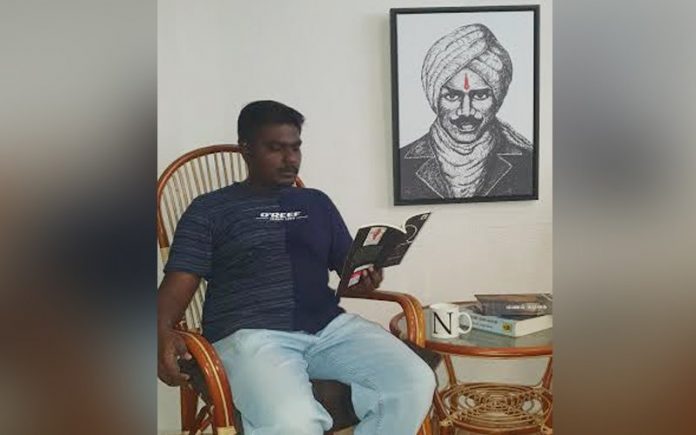
PETALING JAYA: Local Tamil author M Navin, whose book “Peichi” has been banned by the home ministry because of pornographic content, said his work has been taken out of context.
Navin said his 280-page novel is based on true events, particularly the 1981 incident where at least 30 people died and numerous others suffered side effects like blindness after consuming illegally brewed samsu in Lunas, Kedah.
The book centres around the lives of the Tamil community in the 1980s and 1990s, and the work environment in oil palm estates as well as liquor distillation hubs at that time.
The only “pornographic” moment in the book, said Navin, was a rape scene involving the main female character.
“I wrote about the depravity of disfiguring a woman who was looked down upon by her caste, colour and social status. This part has been termed as ‘pornography’.
“Most people read only a few lines, a few parts, and then comment on it,” he said in an interview.
Arguing that other vulgarities in the story were merely a reflection of the realities faced by estate people, Navin said it would have been a “betrayal to the art of writing” if he only described the rape scene in a single line.

“Peichi” is believed to be the first local Tamil work to be banned.
The ministry’s secretary-general, Wan Ahmad Dahlan Abdul Aziz, had said the book, along with another titled “Gay is OK! A Christian Perspective”, were banned because they contained content that might be detrimental to public order, morals and public interest.
The ban was imposed under Section 7(1) of the Printing Presses and Publications Act, which prohibits the printing, production, reproduction, publication, importation, sale, distribution or ownership of the publications in Malaysia.
Navin said he was not notified before the ban was announced.
“I was not subjected to any investigation. My side of the argument was not heard. No letter has been received (from the authorities) so far.”
However, he said he was unfazed by the ban and would continue writing, and that his books were being translated into other languages, including Malay.
After all, one’s creativity should not be bound by government rules, he said.
He said he would continue to help develop Tamil literature in the country as the current industry was too reliant on commercial works and other items produced “just to win prizes”.
“Tamil literature in Malaysia has not experienced any active development for the past 50 years. It is too passive and inconsistent when compared to the development of international literature.
“I have been working hard to change this perception of Tamil literature in Malaysia for the past 15 years. It is natural for a person to face such challenges and obstacles if he wants to make changes,” he said.



